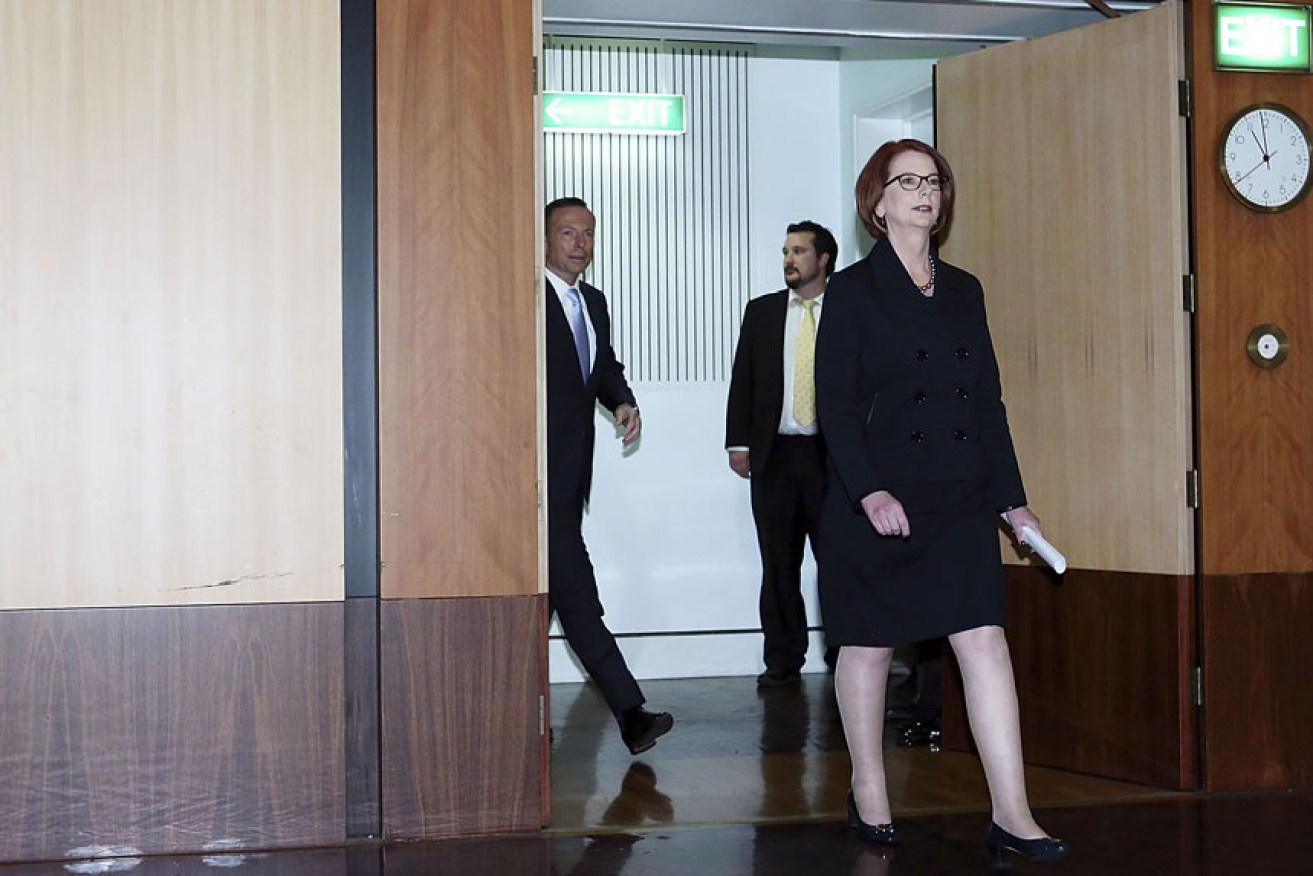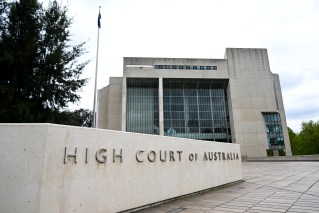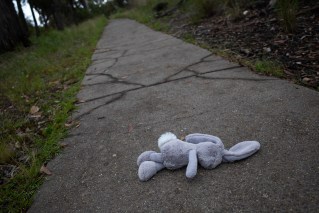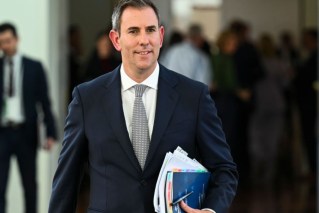Signature reform to follow Julia Gillard out the door

Getty
When Julia Gillard stood up in parliament a year ago to the day (Nov 28) she proudly proclaimed Labor was righting a “great moral wrong” on education.
The then prime minister described her government’s long-awaited and politically-timed legislative response to the Gonski review of schools funding as a distinctly Labor plan for a matter of the highest Labor purpose.
“All my determination, all our resolve is directed towards getting this done,” she told parliament of the Australian Education Bill.
Christopher Pyne, then the opposition’s schools spokesman and now education minister, was dismissive of Gillard’s lofty sentiments.
“The prime minister calls this a uniquely Labor bill and she is right – it is all spin over substance, a classic Labor hoax,” he said after her speech.
Ordinarily, Pyne’s rhetoric would have been dismissed as an overtly partisan response to a landmark attempt to address what one academic described as Australia’s “unnecessarily complex, opaque, ineffective and inequitable” arrangements for funding schools.
Labor’s legislation, however, lent some weight to Pyne’s “empty shell” critique.
It came with no money, initially, and contained a clause stating none of its provisions would be legally enforceable.
The government’s intent, said then school education minister Peter Garrett, was to change the legislation once agreement was reached with the states, territories and private education authorities.
It never got to that point.
Political misjudgements and internal Labor turmoil delayed the government’s ambition to have the agreements signed, sealed and presumably legislated before Gillard’s nominated election date of September 14.
The Australian Education Bill, essentially, was about aspirations, with an overarching goal of ensuring that by 2025 Australia was ranked amongst the top five countries in the world for student performance in literacy, science and mathematics.
Having the states sign up to a national plan with transparent performance benchmarks would be a prerequisite for additional commonwealth funding.
It was an attempt to replace the labyrinth of education policies and funding formulae administered through dozens of different systems.
The Gonski review found educational performance was strongly and unacceptably linked to socio-economic circumstances. The more disadvantaged, the worse the child’s outcomes.
It recommended a funding model that gave every student a funding benchmark amount plus extra money, or loadings, for specific disadvantages.
It wasn’t until April this year that the Gillard government got around to talking real money.
It made a two-to-one offer to the states, committing the Commonwealth to paying two-thirds of $14.5 billion in extra funding over six years.
The figure was based on a core amount of $9271 for primary students and $12,193 for secondary students.
The government school sector would get $12.1 billion, the Catholic sector $1.4 billion and the independent sector $1 billion.
In return, the Commonwealth wanted a say in the way teaching was delivered, what Pyne disparagingly dismisses as Canberra’s “command and control” system.
The states were divided over the offer.
West Australian Premier Colin Barnett said he would be “nuts” to sign up because accepting it represented a 25 per cent cut on what WA was spending on its state schools.
NSW, though, knew a good deal when it saw it. Strapped for cash and with ambitions to reverse declining state Labor spending on schools, Premier Barry O’Farrell signed on the dotted line.
A relieved, rather than triumphant Gillard, had her first state in the bag.
The ACT, South Australia, Tasmania, Victoria, some independent schools and the Catholic sector followed before the September 7 election intervened.
With Pyne now abandoning Labor’s model and signalling a return to a modified version of the coalition’s discredited socio-economic status scheme the legality of any agreements struck with the Commonwealth is open to question.
What’s not in doubt is the coalition’s duplicity.
Having neutered schools funding as an election issue by declaring a “unity ticket” with Labor, the government now claims the Better Schools model is not capable of being implemented and there’s no money in the cupboard to pay for all of it anyway.
Pyne, just 10 weeks after the election, is prepared only to guarantee agreed funding for the first year.
The rest is open to negotiation under a “flatter, simpler, fairer” system that might deliver $1 billion less than Labor promised.
“What one government does another can undo,” Pyne boldly said this week, seemingly unconcerned about the electoral consequences his backflip might create for the coalition.
David Zyngier, a senior lecturer of education at Monash University, is not surprised. He predicted such a scenario just after the election.
Returning to the SES was the model the coalition always supported, despite what Pyne and leader Tony Abbott said to the contrary.
“It will continue to privilege the wealthiest and most elite private schools at the expense of the working class and the poor,” he said.
NSW Education Minister Adrian Piccoli says the SES model has failed and the independent and Catholic schools have made it clear they do not want it back.
Academic Louise Watson, from the University of Canberra, says Pyne’s alternative model will need to address more than just the overall dollar amount given to schools.
“Money alone doesn’t deliver quality schooling,” she said, noting that post-war governments poured in money on the assumption that more resources would automatically deliver better schools.
Finland’s experience of spending just above the OECD norm on education for well above-average results debunked that theory.
Watson is concerned the Pyne model will abandon worthy goals such as as encouraging schools to focus on educational attainment, and raising expectations among students, teachers and parents.
Gillard failed to deliver the “ruling passion” of her life when she was cut down by Kevin Rudd a few days before parliament passed her legislation in June.
She and Garrett are gone. Gonski, it seems, is about to follow.








